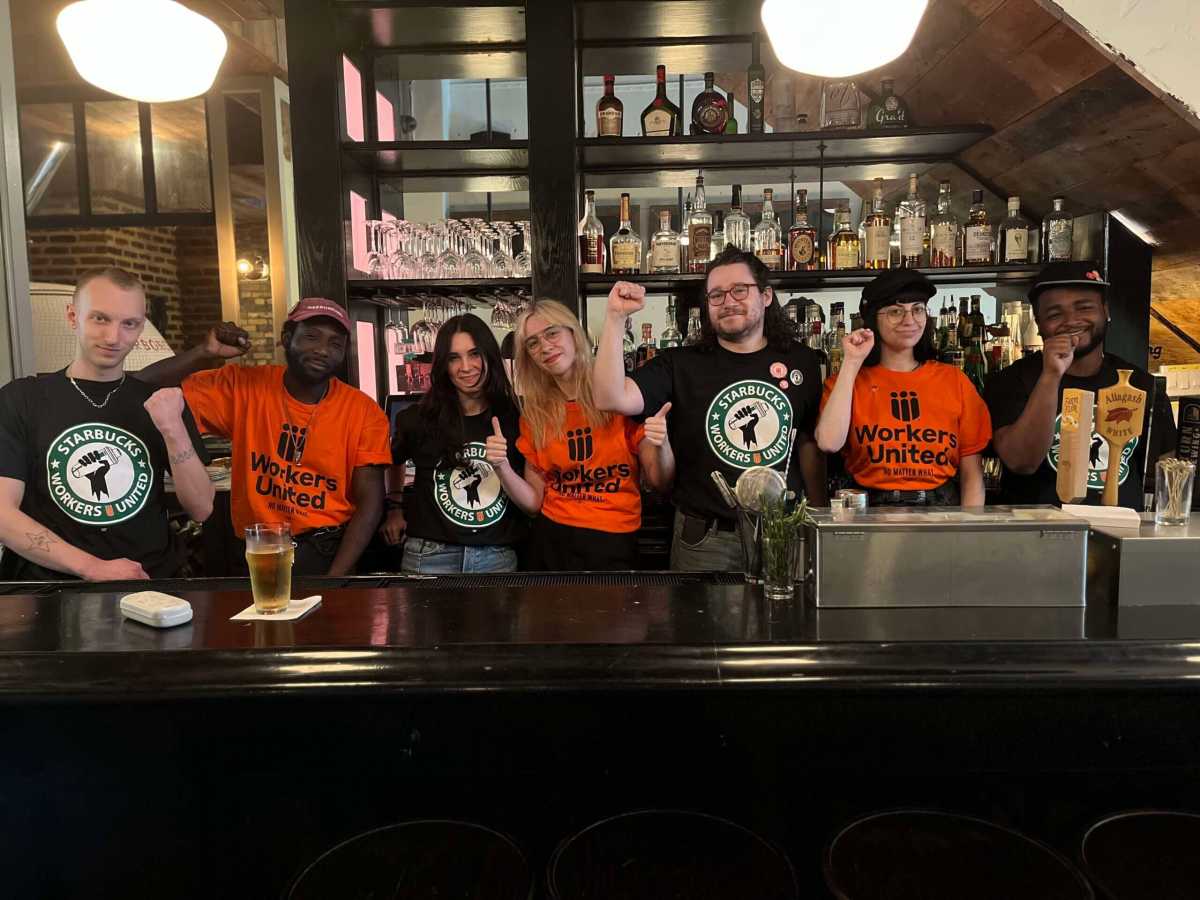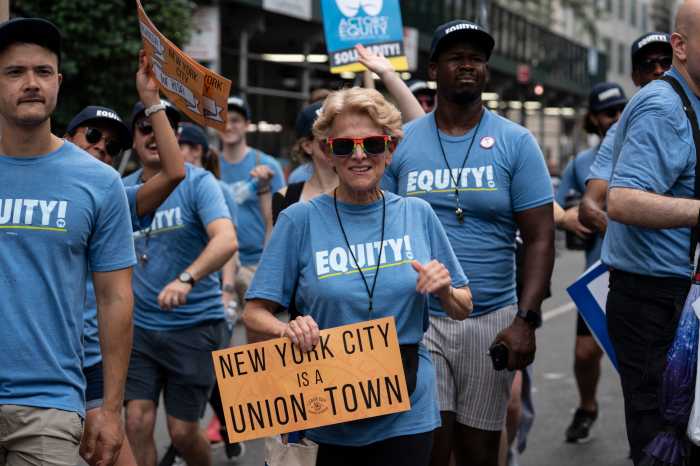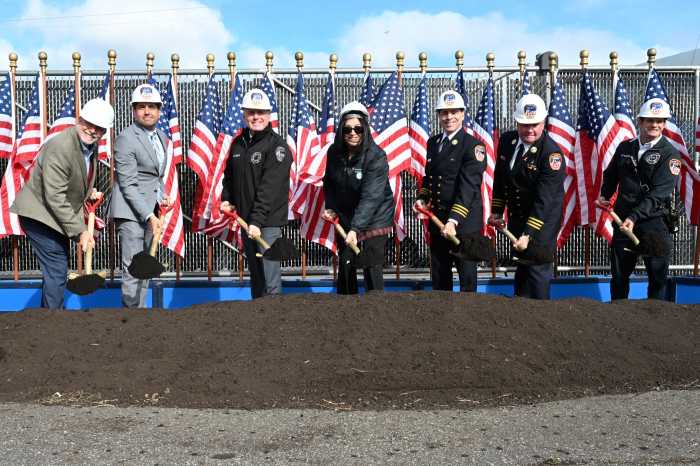Since last summer, workers at a Brooklyn pizzeria have been in the process of unionizing. If successful, they will be the first to form a union at a New York City slice joint.
The workers are demanding higher wages, more agency over their schedules, clear distinction around a “three-strike” disciplinary policy, and a “no tolerance” sexual harassment policy. The workers are also asking for a shop steward to be a union representative.
The pizza parlor currently employs around 40 workers, all non-managerial positions, who work as line cooks, bartenders, bussers, and servers. The ownership switched hands last October from the original proprietor Ron Brown, who opened Barboncino, to husband-and-wife duo Jesse Shapell and Emma Walton, one of the first managers at Barboncino.
And while the new owners made some positive changes, workers say they are pressing on with their pursuit of unionization in search of greater improvements. The workers seek a starting wage of $25 per hour for back-of-house employees and $15 an hour for front-of-the-house workers.
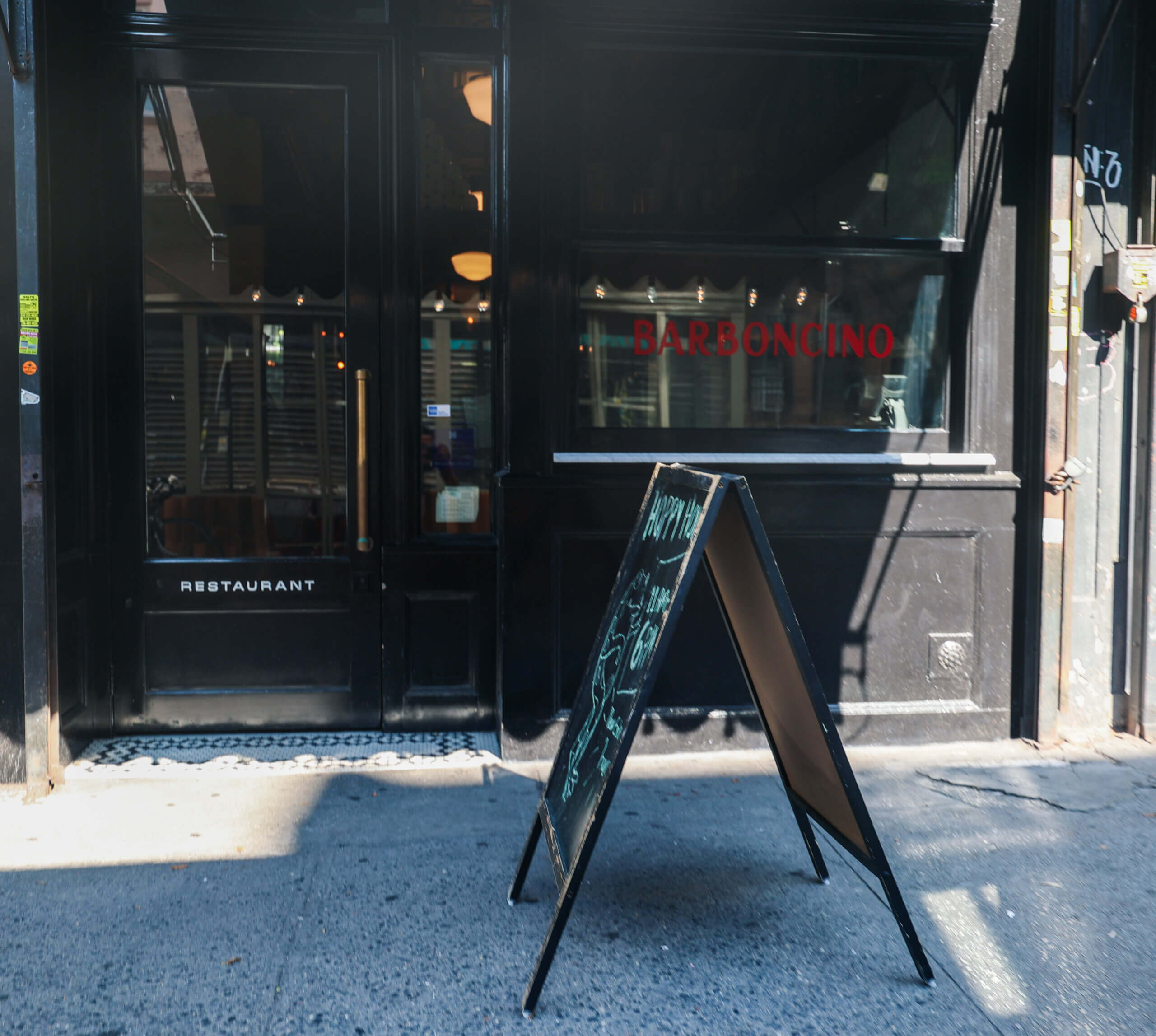
Summer flood contributes to the tension
Since 2011, Barboncino has been doling dough, Neapolitan-style, in Crown Heights. The restaurant is a go-to pizzeria on Franklin Avenue, bustling with modern cocinas serving food from around the world.
Aiden Hart, a busser and server who’s worked at Barboncino for nearly two years, told amNewYork Metro he was at risk of losing his job, along with another worker, when he refused to continue working after cleaning sewage from a burst pipe that flooded the downstairs area last summer.
Initially, he put on a good face to clean the mess, knowing full well that these types of situations happen from time to time in the service industry. Despite offering to stay, Hart was turned off by the previous ownership’s attitude towards workers’ safety and decided to throw in the towel.
Because a former manager covered Hart and another worker after they left that evening to clean themselves, the two employees were able to keep their jobs. But they were left feeling insecure and exasperated.
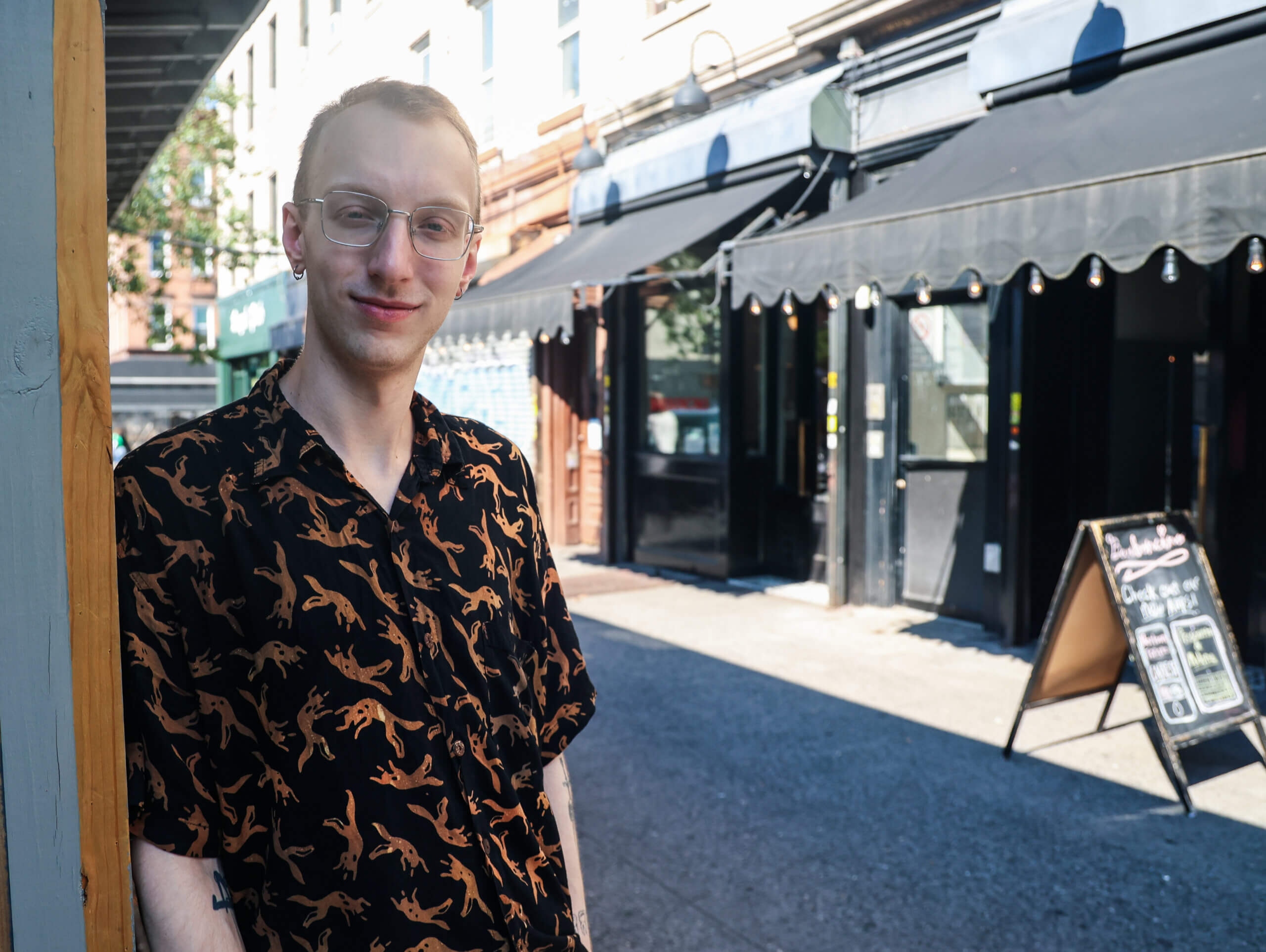
Alex Dinndorf, a server at Barboncino, told amNewYork Metro that a union would provide him and the others with job security.
“We realized that we’re used to being fired for any reason,” said Dinndorf, who’s been at Barboncino for two years. “It’s a service industry problem.”
Several workers reached out to the Emergency Workers Organizing Committee (EWOC), which formed in March 2020 to support people struggling with a lack of workplace protections during the pandemic.
Daphna Thier, a labor educator with EWOC, said the volunteer-run organization has helped around 130 union campaigns, including some still actively unionizing, in New York City. Barboncino Workers United, which is what the workers called their union-in-the-making, decided that Barboncino was worth fighting for.
Restaurant unions, up until recently, have been largely formed by workers at chain restaurants such as Starbucks and Chipotle. Thier, who worked as a New York City bartender for more than a decade, is hopeful that Barboncino Workers United could set a precedent for more small businesses.
“It’s a real game changer, not just for pizzerias, but cafes and restaurants,” Thier said. “Instead of quitting, organize. Hopefully with the help of workers like the Barboncino workers, people will see it more and more as an option.”
Thier and EWOC helped Barbocino Workers United shop around for a union for the workers to affiliate with. The pizzeria union selected Workers United, which supports around 86,000 workers from multiple industries in the United States and Canada, including Starbucks Workers United.
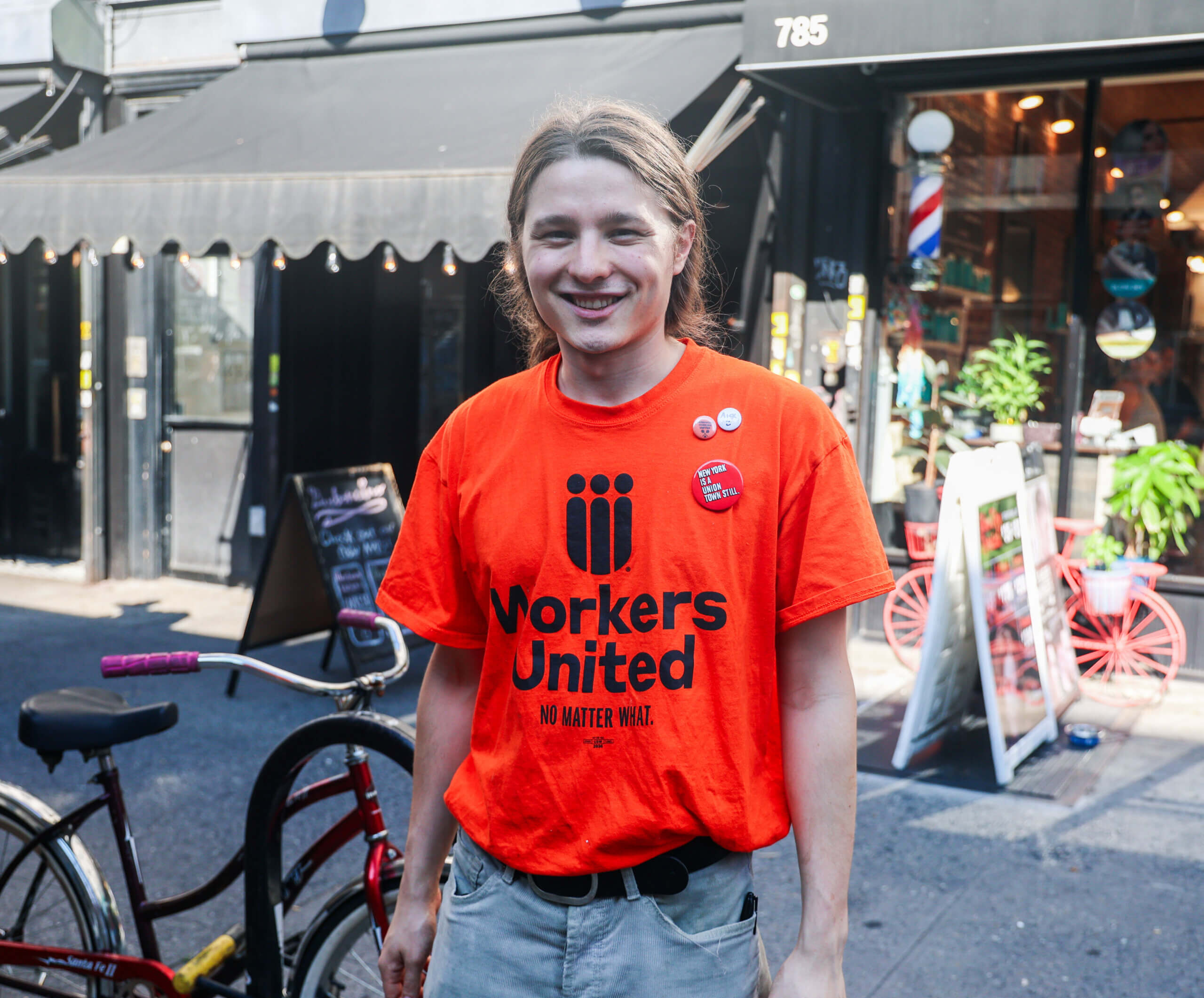
Making their case
Andrea López, a bartender and server with Barboncino for the past five years, told amNewYork Metro about the “mountains and mountains of pizza” and “zero consideration for our health and safety” at the height of the COVID-19 pandemic, working without supervision and hazard pay.
Still, López said that Shapell and Walton have been quick to address some issues, such as replacing the restaurant’s ice machine.
“It’s not like they came in and destroyed the place or anything like that,” López said.
Jared Berrien, a pizzaiolo chef, is proud that Barboncino is a central hub and hangout spot for the Crown Heights neighborhood.
But over the past year he’s worked at Barboncino, Berrien has observed health and safety concerns including “regular, electrical problems” and “standing water” at the restaurant that cooks have slipped and fallen from.
“I would like to see like everyone in our kitchen get paid more money,” Berrien said. “I would like to see realistic health insurance, especially considering that we work with an open fire, knives, slicers, and dangerous equipment.”
In response to these concerns, Walton stated that, “Barboncino provides a safe working environment for all employees.”
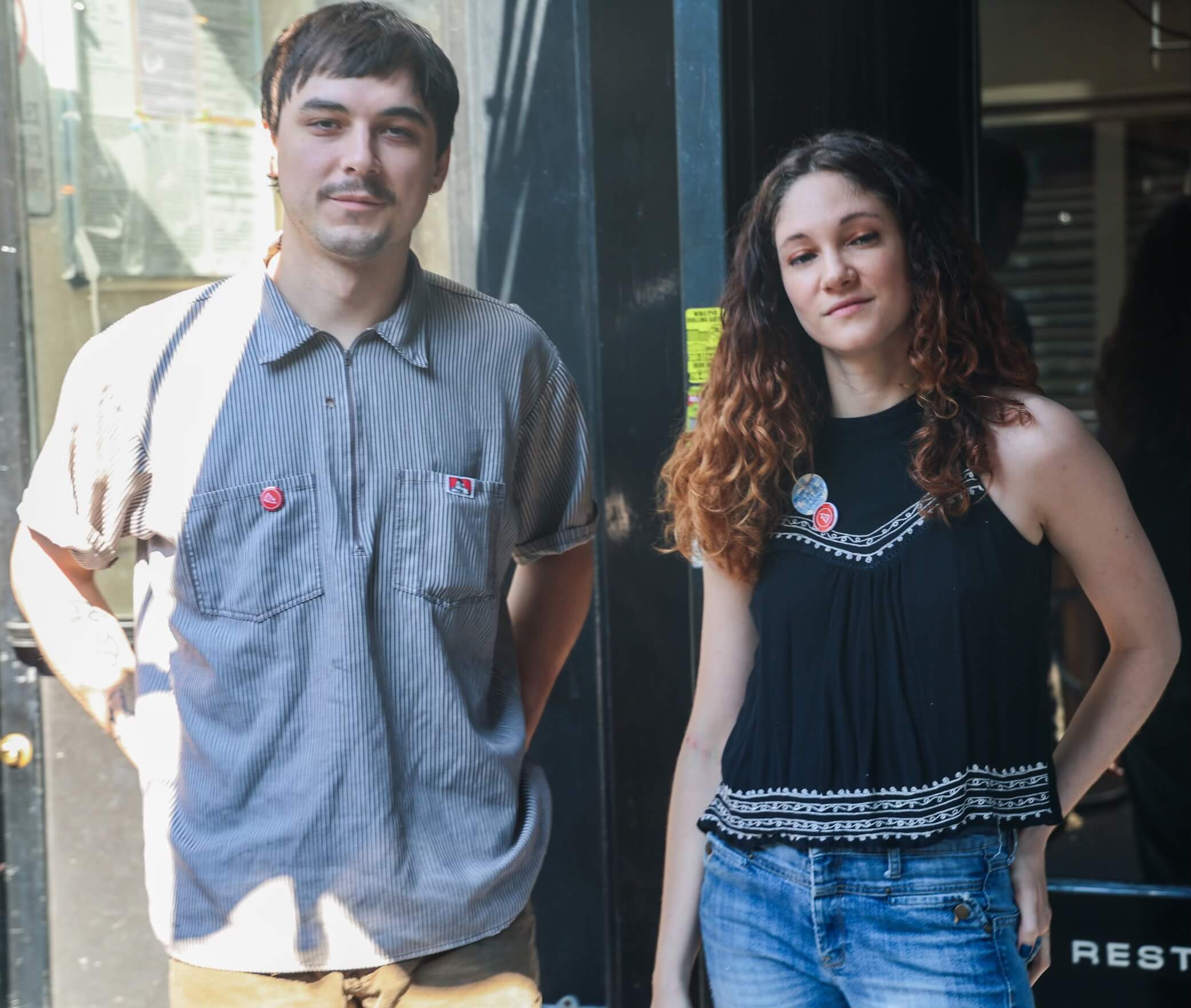
Through regular meetings in the early months of organizing, Barboncino workers spent most of their time discussing and learning about each other’s needs.
“So much of organizing is just chatting with people and getting people to air their grievances,” Hart said.
In a joint statement shared with amNewYork Metro, Shapell and Walton acknowledged their workers’ interest in forming a union began before they took over and that the election process is well under way.
Shapell and Walton stated that, “Barboncino will continue, as always, to support its customers, community and employees. Barboncino maintains employment policies that comply with applicable laws. Additionally, Barboncino offers competitive hourly wages in line with minimum wage requirements and current industry wage standards. Barboncino currently offers all eligible employees an employer-matching 401(k), as well as pre-tax commuter benefits.”
Dinndorf said the workers have an agreement with management and ownership to not discuss specific personnel and termination policies in exchange for a workplace free of union busting.
“So far, they’ve respected that agreement,” Dinndorf said.
Hart, who makes $10 per hour not including tips, said he needs a cost of living adjustment.
“My wages have not changed since I’ve been here for two years,” Hart said.
The workers also want what they are calling an “86 List” of people who have harassed or sexually harassed workers in the past, and for staff to have the power to ban them from the restaurant.

Several Barboncino workers said they have seen a drastic improvement in workers’ spirits since they went public with their unionizing, Hart said.
To elevate their demands, around 75% of non-managerial staff signed a petition requesting a meeting late last year with the owners to discuss contract terms.
The organizing committee worked with Workers United to distribute election authorization cards to workers to sign. If 30% of staff signatures are collected and filed with the National Labor Relations Board, an election is automatically triggered.
Barboncino successfully got 85% of staff to fill out union cards — “an absolute supermajority,” Dinndorf said.
“Every kitchen worker, pizzaiolo, and prep cook signed union cards,” Dinndorf said. “It really was a serious moment when we realized how much power we had.”
The workers are now preparing for contract negotiations while continuing to work with a lawyer at Workers United to attain the best possible outcomes. The election will determine whether Barboncino Workers United will be an official union.
“We’re playing a big part in New York. I take pride that we’re the first unionized pizzeria, but I know we’re not the last,” Dinndorf said. “We’re not stopping until we get a contract.”

Read more: Brooklyn Gang Member Charged for Role in Teen’s Death



